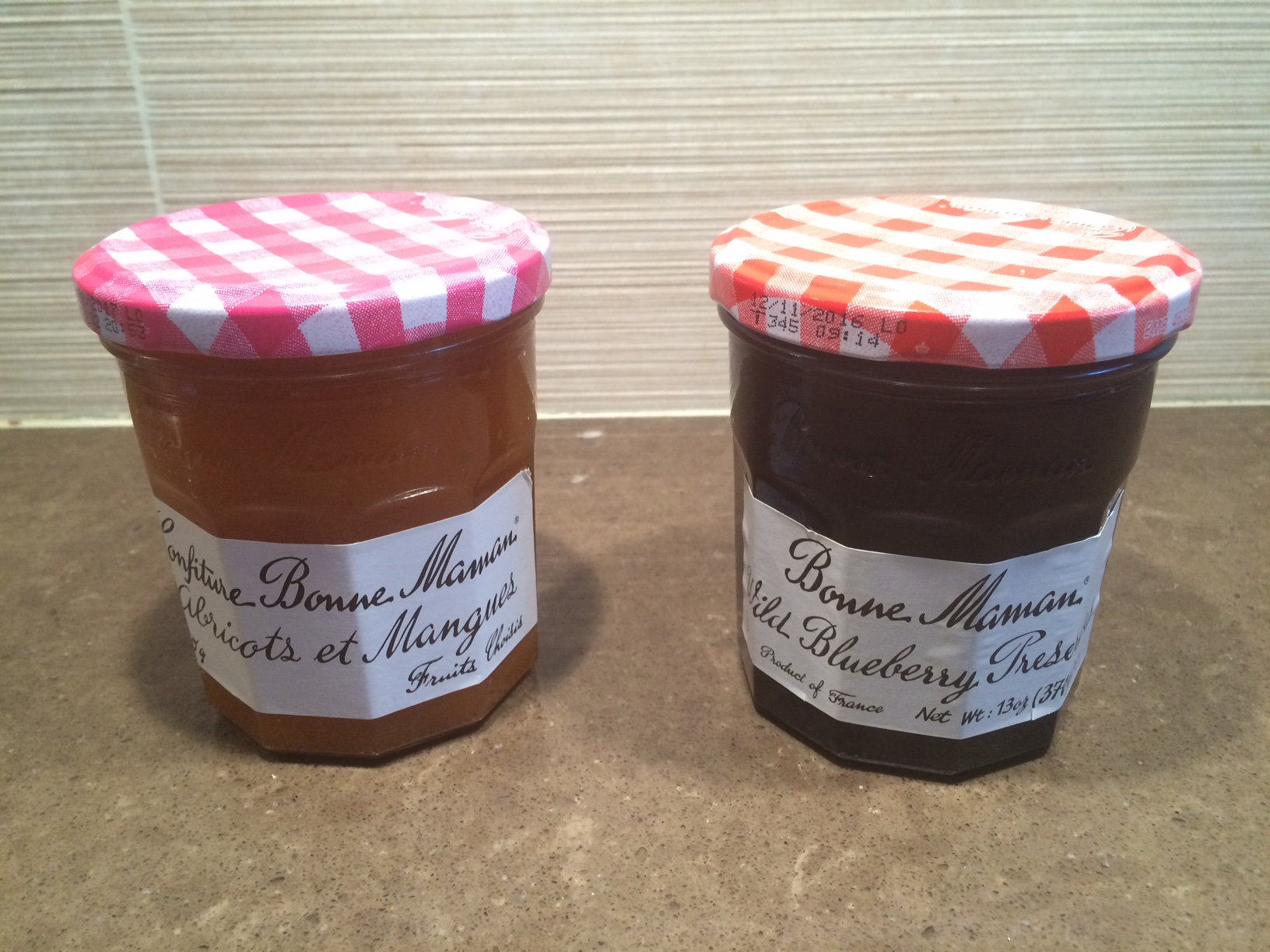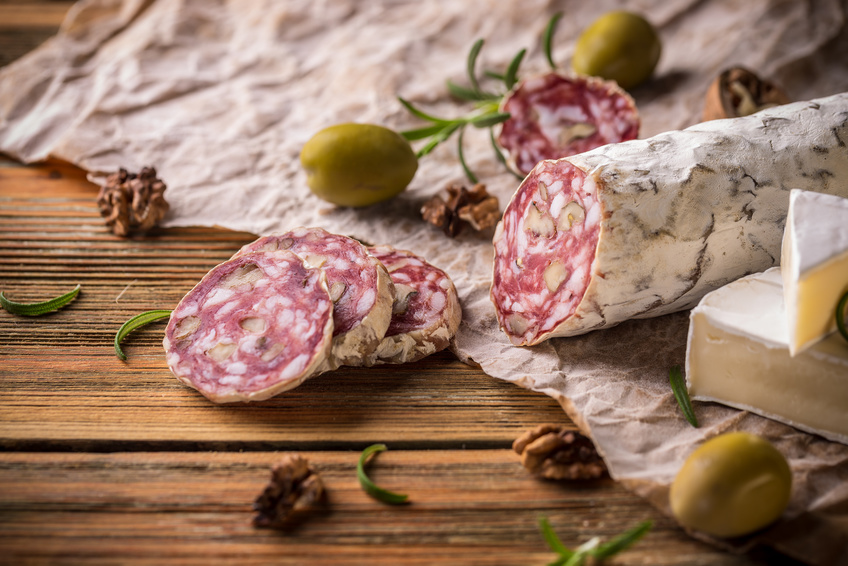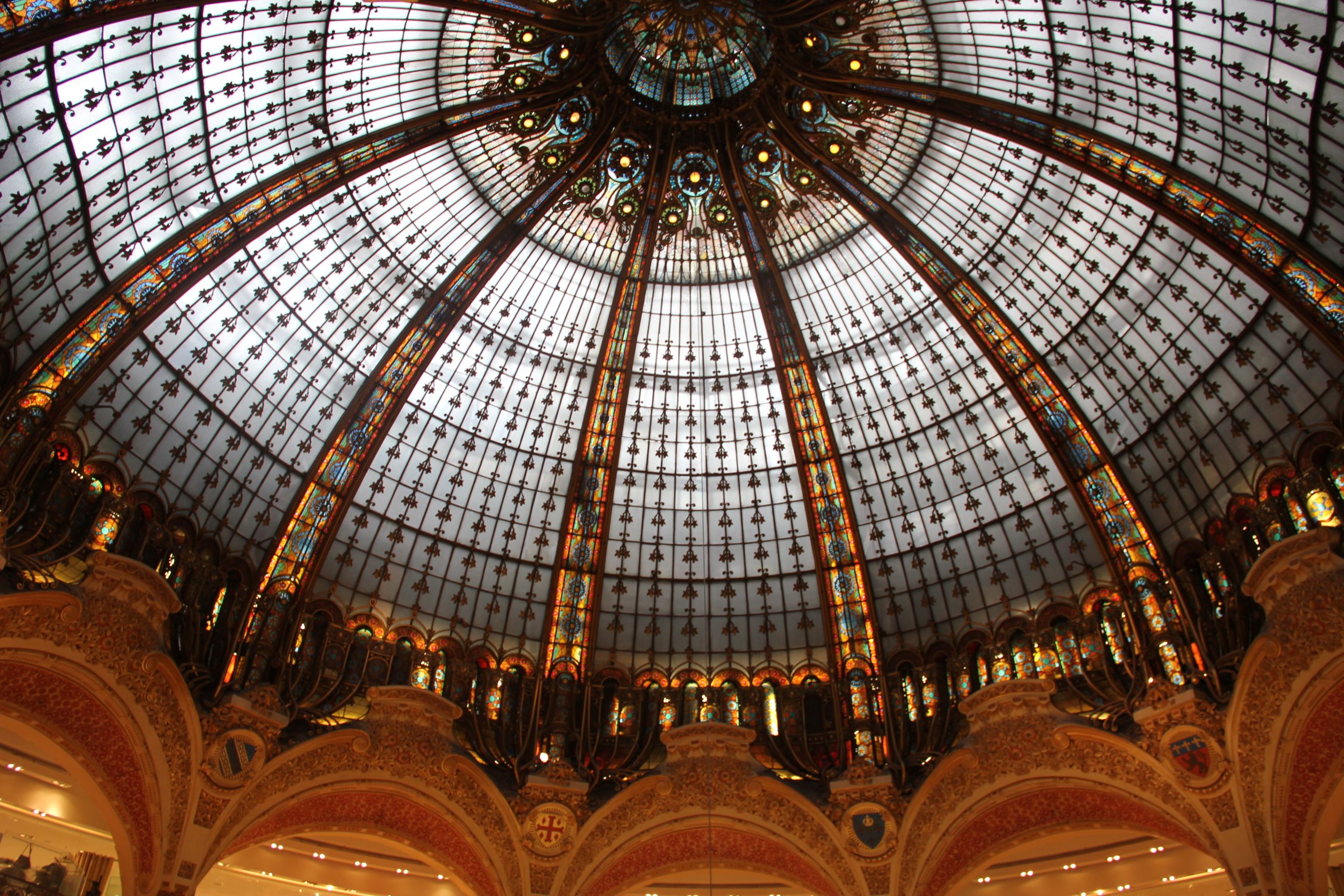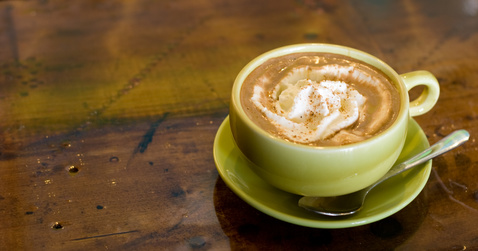
Three years ago, I posted about the absence of French brands in America. Unfortunately, little has changed since my article, “Missing the Made in France in the United States.”
Last week, I discovered a new store in downtown Bethesda, MD. Butchers Alley carries meat from happy cows and pigs, as well as specialties like frog legs, pao de queijo (yummy cheese balls from Brazil!), and other international types of cheese.
I don’t know if I’ve ever mentioned it, but I used to work for a large French cheese company.Since then, besides my love for all kinds of cheese, I have kept a quite good memory of the European cheese market. When I saw that Cambozola was praised as a French cheese, I couldn’t stop myself from arguing with the vendor. Cambozola is not a French blue cheese. It’s not even an Italian one, even if its name sounds like the great Gorgozonla. Cambozola is a German cheese, produced in Bavaria.
Three years ago, I shared how upset I was to find many German products in American supermarkets but very few French ones. And yet, “Frenchness” is present and visible in many supermarkets. I can buy baguettes, croissants, and madeleines in Kansas, California, or Florida. I don’t need to be in New York or Washington, DC to get a decent plate of cheese. At least in supermarket chains like Giant or Publix, you’ll find Roquefort, Boursin, and some Camembert.
What did I expect exactly?
Food, wine, cosmetics, perfumes, and fashion—in my opinion, one shared by many French expats, these fields define Frenchness expressed outside of the country.
Wine? My husband has complained about the quality of French wine since we moved to the States. He pretends that only the bad wines are exported, while the good ones stay in France and for French palates. Would anybody here agree or disagree with him?
Cosmetics and perfumes? French brands can be purchased at Macy’s, Bloomingdale’s, and other department stores. My 17-year-old daughter’s favorite place is Sephora, the French chain of cosmetics, and there are plenty of Sephora stores in the United States. French cosmetics may be quite expensive here, but they can be found and purchased.
Fashion? We have to differentiate the “Haute Couture” from the “prêt-porter” clothes that are ready to wear (more commonly known as factory-made clothing with standardized sizes). French Haute Couture is not accessible to most people, but the French have many quality clothing brands which are almost absent in America. I’m thinking mostly of nice children’s fashion brands like Petit Bateau, Sergent Major, Catimini, etc…
Food? Well, there are many French generics in the American food industry. But, among the numerous (supposedly) French bakery and pastry chains, the genuinely French PAUL bakery chain is very small. According to their website, there are 14 stores in the US as of January 2016.
When I shop, I buy Yoplait and Danone yogurt (renamed “Dannon” for the American market). In 2014, Yoplait launched a campaign inspired by its French heritage. Two advertisements featured a woman with a French accent:
https://youtu.be/Qo_KvkwwGUM
Then, I can enjoy imported Bonne Maman jams, Maille mustards or LU biscuits, and Evian and Perrier bottled waters. That’s it, more or less.
Bonne Maman, the French exception in America
Dannon chooses to Americanize the brand and its products. In the US, the taste and texture of Dannon yogurts are nothing like the French products. They have a sweeter taste and a less milky consistency. Evian and Perrier, upscale brands in the water bottle market, decided to sell their Frenchness at higher prices.
Bonne Maman didn’t adapt anything—not the brand, packaging, or ingredients. The company sells its jams among American brands, and after looking at the supermarket shelves and the brand’s presence all over the country, I’d think they are pretty successful.
For some brands and some products, no adaption is needed to conquer the world. Apple is one example, and Bonne Maman another. While Apple disrupted the computer, music, and phone industry, Bonne Maman simply promises good homemade jams. Bonne Maman’s ingredients taste amazing, the jam is not too sweet, and the red tablecloth lid reminds me and many others of good old home cooking.
The brand name is also genius, as no one needs to be an A student in French to figure out what the brand means. The name literally translates to “Good Mama.” In fact, “Bonne Maman“ is French for granny.
In France, Bonne Maman sells jams, yoghurts, desserts, and cookies. During my 20 years of expat life, I’ve had plenty of opportunities to try them all. I assure you that all of them are excellent. Their secret? Old house recipes made with excellent ingredients.
One last reason to like Bonne Maman: it’s a family business, a hidden mid-size gem located in a small village in southwestern France.
The “Made in France” label is a strong symbol in the food industry. In the case of Bonne Maman, its success lies in unsurpassed product quality along with strong branding and packaging.
France has many other brands that carry these values. Someday, I hope that they will wake up, hire me to manage their intercultural marketing, and get the success they deserve in America!





In France Bonne Maman is less sweet and better quality fruit. Also note “fruits choix” on the bottom right-hand of their front label, which is not on the exported American version. I’ve compared the American version with the French version side by side. The American is sweeter with lesser quality fruit.
Hmmm…in France Bonne Maman is the cheapest jam in the supermarché. And an industrial brand on a grand scale to boot. Its owned by Andros now. No longer family-owned. Their desserts? Very industrial IMHO. Not the best of supermarket desserts. Sorry. Their jam packaging is charming and I love to paint it.
Bonne Maman is great and a staple in our fridge. My husband loves the chocolate mousses the best. I like the rice pudding. 😉
Thank you for sharing, Diane.
And you have not contacted Bonne Maman to ask them to hire you as an ambassador for their products in the D.C. metropolitan area…why?